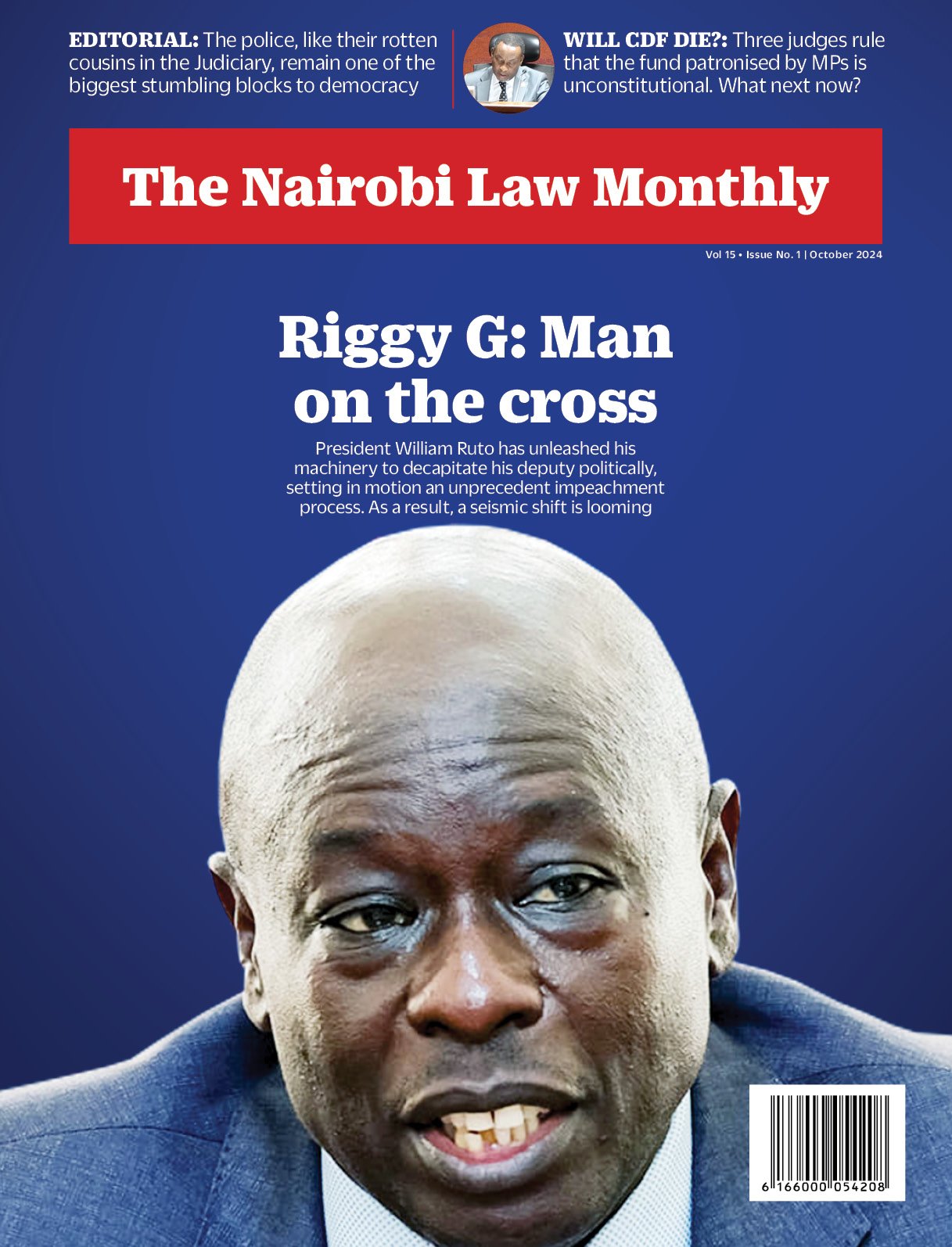BY TNLM
The contract described by the High Court as “indiscriminate and clandestine” was faulty, if not deliberately drafted to favour Smith&Ouzman.
It hugely underestimated the magnitude of the task. Based on simple arithmetic, IEBC required a minimum of 84 million ballot papers (14 million voters, six ballot papers each) for the first round of voting, yet the contract stated “15 million ballot papers” at the rate of Sh1.655 billion.
“Contract is for the supply and delivery of fifteen million ballot papers and statutory result forms for the General Election to the Commission,” the contract, signed between IEBC and Ouzman on December 11, 2013, stated. But in a letter to the PPOA, IEBC’s Oswago talked about 108 million papers plus 17 million in case of a run-off.
Interestingly, in a letter of notification to Smith&Ouzman dated December 11, 2012, IEBC chiefs hardly mentioned the number of ballot papers but merely stated “supply and delivery of various ballot papers for the General Election at the total cost of £11,716,201.12”. He added that the “total cost for the General Election and Presidential re-run ballot papers shall be £13,135,946.48 (Sh1.55 billion) (inclusive of run-off costs)…”.
Why the discrepancy?
There could only be two explanations. The IEBC may have entered into several agreements with Smith&Ouzman and never made it public. Two, the “flaw” left room for renegotiations – a lacuna that could easily have been seized by shrewd individuals within the IEBC to make money. Indeed, the contract provided leeway for “price adjustments” and “direct informal negotiation”.
Inexplicably, this contract was signed a week before the closure of the voting exercise, when the number of voters wasn’t clear. The rush was perplexing, given that IEBC was to dispatch names of candidates 49 days later, after the completion of the primaries and resolution of any ensuing nomination disputes.
In fact, according to the time-chart proposed by Smith&Ouzman, the printing and production of ballot papers was to commence on January 28, 2013 and the ballots to be dispatched to Kenya between February 15, 2013 and February 22, 2013.
Interestingly, IEBC gave out a letter of acceptance to Smith & Ouzman even before the company presented its bid documents on November 12, 2013, according to a copy of the contract in our possession. The letter of acceptance was dated November 9, 2013 – issued three days ahead of the delivery of bid documents.
(It is instructional to note that Ouzman is the same company that failed to deliver during the 2007 election. The Electoral Commission of Kenya (ECK) was forced to give out part of the project to Kalamazoo (to print Presidential and MP ballots). Implicitly, the IEBC failed to conduct deep due diligence on Smith&Ouzman and its local contacts).
According to sources within the IEBC, a top official in the Legal Department declined to append her signature to the Ouzman contract on concerns it was faulty. Instead, it was signed by a manager. The official in question felt that there was enough time to invite more bidders. The official also raised questions about the capability of Smith&Ouzman to deliver on time, to execute the massive project.
(Smith&Ouzman failed to deliver in Nigeria, leading to the rescheduling of the country’s elections)
In hindsight, IEBC was all aware about questions surrounding the deal. Tabitha Mutemi, the Commission spokesperson, released a statement justifying the choice of the company, thus “the Commission and the tender committee approved the single sourcing because of the timing; (the company) has been tried and tested and we have to have a supplier in place as we wait for other activities like party nominations to take place”. She didn’t indicate why there had been delay in the first instance.
“(Smith&Ouzman) has given IEBC an assurance that it will meet its contractual obligations on time and IEBC has undertaken due diligence on the matter,” the then IEBC chief executive James Oswago wrote to Public Procurement Oversight Authority director Morris Juma.
Control
IEBC may not have had control over this project. Smith&Ouzman was clearly undercapitalized for the huge project. It’s turnover in 2011 was Sh1.3 billion yet it was seeking to undertake Kenya’s Sh1.855 billion project. In fact those opposed to Ouzman’s award (among them Kalamazoo and Aero Vote UK) warned that the bidder lacked capacity to undertake such a massive project.
(One of the clauses of the initial contract between Ouzman and IEBC, December 2012, forbade outsourcing. But unconfirmed reports indicated that Ouzman officials visited the country and had the clause reviewed).
When the public raised this use, Oswago was quoted as having said, “since the scale of the project requires more than one printing company (Ouzman) was to source for strategic partners and furnish IEBC with their financial and technical capacity details, which are in our possession. However, IEBC will work only with Ouzman, which will in turn manage its strategic partners”.
Trouble is, IEBC has no control over third parties.
(It is instructional to note that Smith&Ouzman got the tender to print some – NOT ALL – of Uganda’s ballot papers, in the 2011 elections. It printed the Presidential and also District Woman MP ballots papers. The rest went to three other companies – Kalamazoo, Avic International Holding Corp, and Lithotech International).


